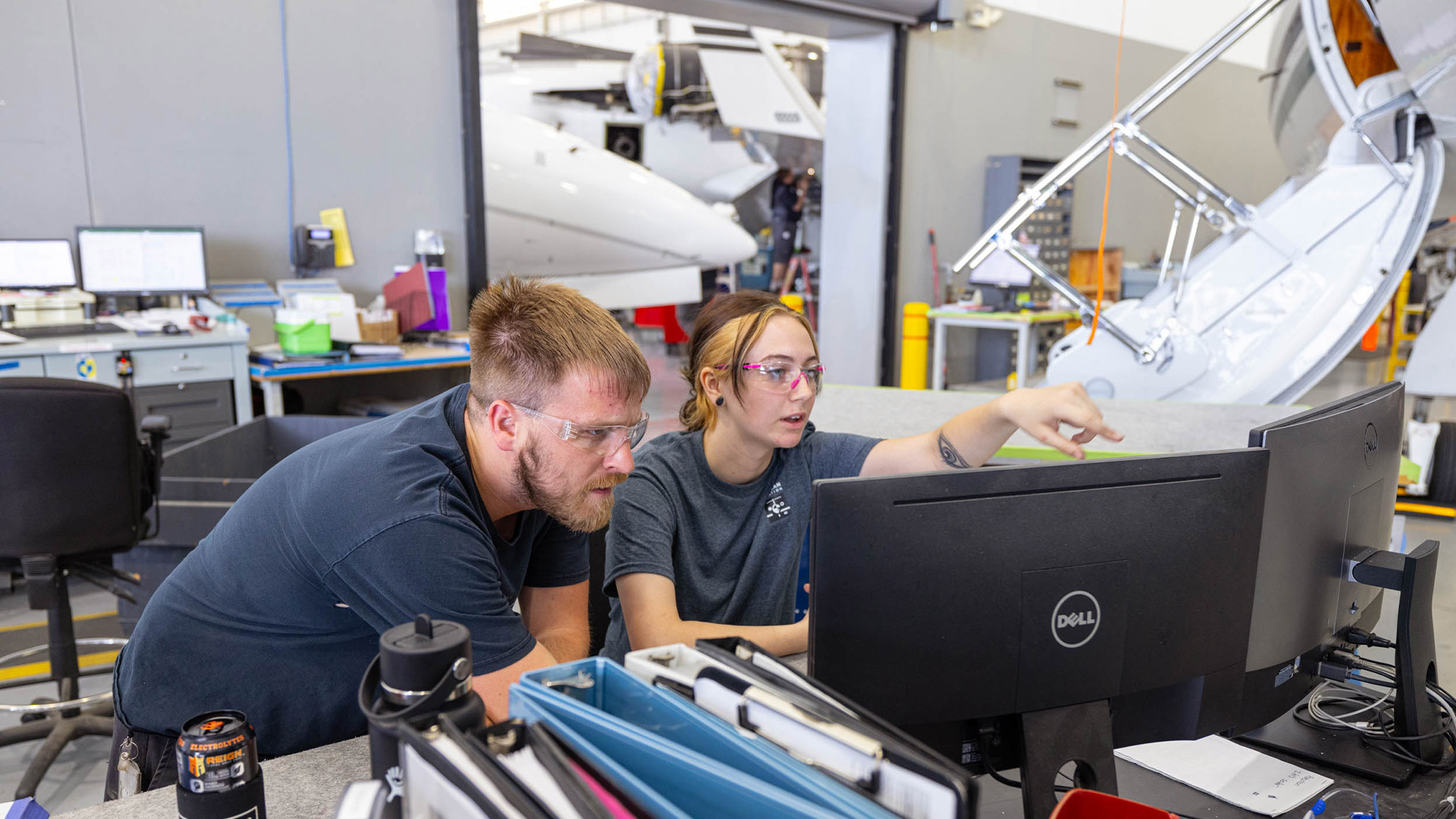
Aviation leaders at Dell Technologies shared the strategy behind their commitment to sustainability.
Sustainability is embedded across Dell Technologies’ business. Bas de Bruijn, MBA, Dell’s senior director of aviation, and Laura Clifford, CAM, Dell’s aviation business manager and aviation sustainability officer, drive the same sustainability culture within the company’s flight department.
“We wondered how we could better align the flight department with our corporate culture so we reached out to the corporate sustainability team and asked how we can help,” said de Bruijn. “We are in the process of building a sustainability culture within our flight department just as we’ve built a safety culture. We want to be sure sustainability and sustainability initiatives are at the forefront of everyone’s thinking and are engrained in our operations.”
Dell’s initial focus is on jet fuel emissions (which fall under so-called Scope 1 emissions). The organization is committed to procuring sustainable aviation fuel (SAF) as a primary fuel source to be industry leaders, drive increased demand, encourage investment and, ultimately, bring the overall SAF price down.
“We realize we’re a drop in the bucket [in overall fuel demand] but it’s a signal to the industry that SAF is not only safe to use, but buying SAF is the right thing to do,” said de Bruijn.
Clifford manages the sustainability efforts in the flight department.
“It can be difficult to secure proper documentation for SAF purchases on the road, so we typically buy SAF-C to meet our annual sustainability targets,” Clifford said. SAF-C is a book-and-claim system, whereby an entity can purchase and claim the green attribute associated with SAF fuel without actually uplifting it.
“… the company publishes an annual sustainability report, and our flight department has a good story to tell. There’s a lot of value in that. It far exceeds the small investment you make as a corporate flight department.”
BAS DE BRUIJN MBA, Senior Director of Aviation, Dell Technologies
Dell aims to increase its SAF procurement year-over-year by at least 5% to support company goals of reaching 50% reduction in Scope 1 emissions by 2030 and net-zero greenhouse gas emissions by 2050. The company purchases carbon offsets for the remainder of its aviation carbon footprint.
Clifford reaches out to Dell’s sustainability department to ensure carbon offsets are of high quality and recommends flight departments without corporate sustainability resources work with experts to verify the validity of carbon offsets. “Buying the wrong offsets can be worse than not buying any at all,” she said.
“It’s not as daunting as some people feel it is. It feels overwhelming at first, but after comparing the requirements to what we were already doing, it wasn’t as hard as we thought.”
LAURA CLIFFORD CAM, Aviation Business Manager and Aviation Sustainability Officer, Dell Technologies
De Bruijn and Clifford are both clearly passionate about sustainability. But aside from personal commitments, de Bruijn reports Dell and many other corporations in the U.S., especially those associated with the Business Roundtable, are increasingly considering a broad range of stakeholders when conducting business.
“What that means is that, in addition to shareholders, stakeholders in the ecosystem – such as suppliers, customers, employees, the world in itself and our environment – are taken into consideration when you conduct business,” said de Bruijn.
As Dell’s sustainability commitment is driven throughout the organization, top executives are involved with the flight department’s sustainability efforts.
“We realized this is important and we need to get out ahead of it,” de Bruijn said as he presented a budget for sustainability initiatives to company executives. “There’s no direct or tangible return on investment, but the company publishes an annual sustainability report, and our flight department has a good story to tell. There’s a lot of value in that. It far exceeds the small investment you make as a corporate flight department.”
De Bruijn encourages other flight department leaders to proactively engage in sustainability initiatives with their “downtown” office.
Reaching Accreditation
Dell recently completed the NBAA Sustainable Flight Department Accreditation, focused on reducing flight emissions.
“It’s not as daunting as some people feel it is,” said Clifford. The NBAA accreditation process helped Dell discover new activities that didn’t require recreating the wheel.
Easy first steps include purchasing SAF for 5% of fuel purchases and then, incrementally increasing that goal each year. Another achievable initial action is purchasing carbon offsets, which de Bruijn said is a relatively small investment.
Learn more about NBAA’s Sustainable Flight Department Accreditation Program at nbaa.org/sustainability.


